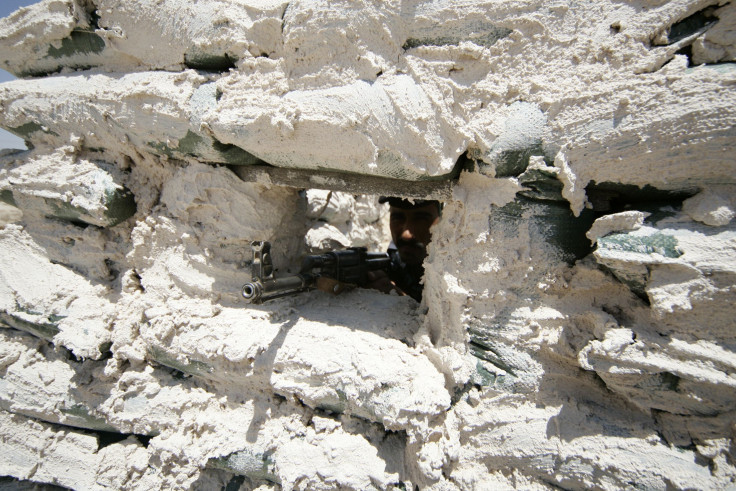Saudi Arabia Deploys 30,000 Troops To Its Border Claiming Iraqi Troops Deserted It Amid ISIS Threat

Saudi Arabia on Thursday sent 30,000 troops to its border with Iraq, claiming that Iraq’s military deserted the area in the face of an onslaught from the Islamist State of Iraq and Syria, or ISIS.
Baghdad has denied the claim, reported by local media, that its troops abandoned the 497-mile-long border that Iraq shares with Saudi Arabia. However, Dubai-based al-Arabiya network showed Iraqi troops pulling out from the country's border, Reuters reported, adding that the Syrian and the Saudi borders are now unguarded by Iraq's military.
“Concerned about Saudi Arabia’s security and to safeguard against terrorist organisations or any other groups that might endeavour to destabilise the kingdom, he (the king) has ordered all necessary measures to protect the gains of the homeland and its stability, and the security of the Saudi people,” a statement from the Saudi National Security Council said, according to Dawn, a Pakistani newspaper.
Iraq has maintained that its troops have not left the region and added that the country's border is being controlled by the Iraqi military.
"This is false news aimed at affecting the morale of our people and the morale of our heroic fighters," Lieutenant General Qassim Atta, the military spokesperson for Iraqi Prime Minister Nouri al-Maliki said, Reuters reported.
Major General Mansour Turki, the spokesperson for Saudi Arabia's interior ministry, also said that security provisions in the region were intact and said: "We have not experienced any insecurity close to our border, and our border is secured and protected long before the latest events in Iraq," according to Reuters.
Saudi Arabia’s King Abdullah had a telephone conversation with U.S. President Barack Obama on Wednesday and both leaders stressed that it was necessary to form a fresh administration in Iraq to bring together “Iraq’s diverse communities." Abdullah also committed $500 million to help Iraqis fleeing the violence in the region.
“The two leaders discussed the current situation in Iraq, and the threat that the Islamic State of Iraq and the Levant (ISIL) poses to the stability of Iraq and to the entire region. They reaffirmed the need for Iraq’s leaders to move expeditiously to form a new government capable of uniting all of Iraq’s diverse communities,” the White House had said, in a statement on Wednesday.
© Copyright IBTimes 2025. All rights reserved.






















